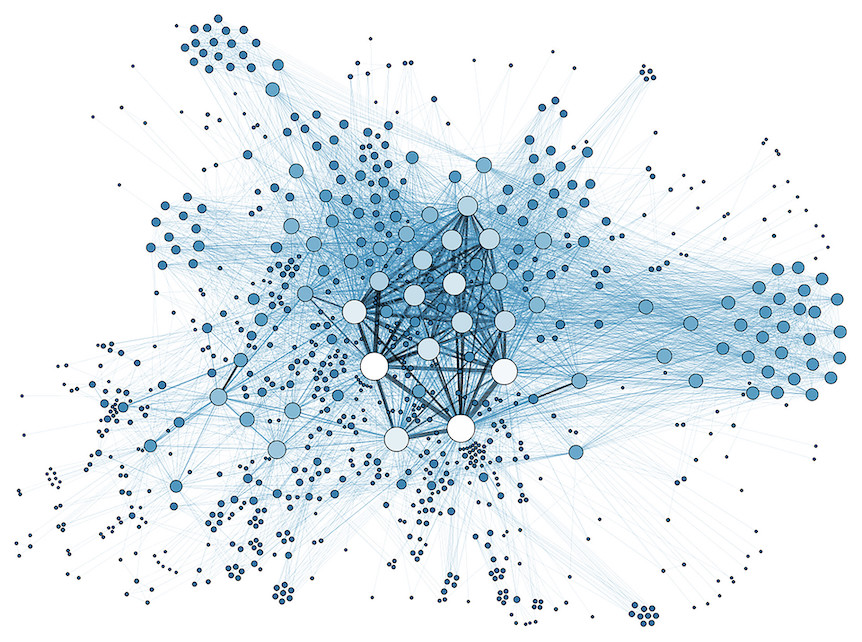
Politics, Affiliation, and the Philosophy of Friendship
Online intensive course: O My Friends There Is No Friend: Politics, Affiliation, and the Philosophy of Friendship
June 28 – July 16, 2021
macp.sva.edu
This summer, from June 28 through July 16, we are excited to collaborate with the University of Gothenburg’s Valand Academy of Art and Design for an online three-week intensive, O My Friends, There Is No Friend: Politics, Affiliation, and the Philosophy of Friendship. (EU passport holders should apply through Valand Academy; all others through SVA.) In the current time of isolation and social upheaval, it is all the more crucial to consider what affiliation and friendship have meant throughout history and can mean.
Across individual, collective, and societal registers, in respect of both cooperative and antagonistic entanglements, our extraordinary guest speakers and global participants will consider the complex and multiple histories of affiliation and friendship, taking into account love, familial affection, extra-familial affection, communality, fidelity, consensus, goodwill, recognition and acknowledgment, sameness and difference, oppression and freedom, and the intimate opacities of relationality. The politics and ontology of friendship, the metaphysics of togetherness and agency, and the apparatus of support structures within the spectrum of filial relations will all be considered in their entwinement with gender, race, and governmentality.
Points of reference will include Hegel’s formulation of self-overcoming, mutuality in otherness, and relational freedom; Virginia Woolf’s challenge to patriarchal representations of friendship; Carl Schmitt’s friend/enemy dichotomy; Derrida’s central text, The Politics of Friendship, and Fred Moten’s considerations of both Schmitt and Derrida; Walter Mignolo’s articulations of coloniality and decoloniality in this context; Elizabeth A. Povinelli’s visionary anthropological thinking across topologies of love and affiliation; and Sibyl A. Schwarzenbach’s discourse on friendship as a feminist political strategy, among other key terms and texts.
Among our guest speakers will be the internationally renowned philosophers, scholars, artists, writers, and curators Simon Critchley, Hans Jonas Professor of Philosophy, the New School for Social Research; Yuk Hui, Associate Professor, School of Creative Media, City University of Hong Kong; Walter Mignolo, William H. Wannamaker Professor of Literature and director of the Center for Global Studies and the Humanities, Duke University; Elizabeth A. Povinelli, Franz Boas Professor of Anthropology and Gender Studies, Columbia University; Sybil A. Schwarzenbach, professor emeritus of philosophy and women’s studies, City University of New York; Céline Condorelli, artist and writer, London, including the books Support Structures and Notes on Friendship; Irish artist Sarah Pierce; and Shuddhabrata Sengupta, member of the Raqs Media Collective, Delhi, among several others soon to join us. Graduate-level participants will be selected from across disparate yet intersecting fields, including art, philosophy, design, activism and curatorial practice. The intensive will be led by Steven Henry Madoff, founding chair, MA Curatorial Practice Department, School of Visual Arts, and Mick Wilson, professor of art and director of studies for Research Education, HDK-Valand Academy of Art and Design, University of Gothenburg.
This special intensive is an extension of MA Curatorial Practice’s ongoing concerns with considerations of activism and social justice seen in the program’s curriculum, as well as in previous events such as our summit Curatorial Activism and the Politics of Shock and the subsequent book, What about Activism?, published by Sternberg Press. For further information about the intensive, click here, and to learn more about the MA Curatorial Practice master’s degree program, please follow this link.
Image credit: Visualizing affiliation. Illustration from Martin Grandjean, “La connaissance est un réseau,” Les Cahiers du Numérique.







